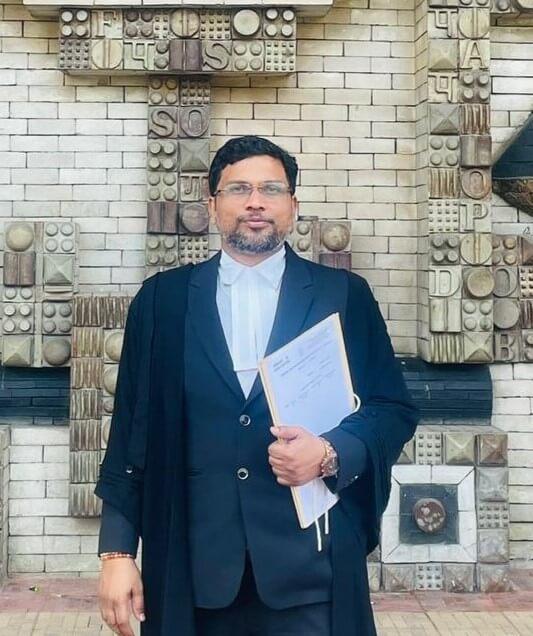Top Bail Lawyer in Delhi. Bail Laws: What Every Client Should Know What is bail in simple words? Freedom with boundaries. The bail gives the person a free move but also comes with certain terms to follow. One accused needs to follow the terms for their security. While getting bail over the punishment is more helpful for an accused. Some of the cases filed in the jurisdictions are based on false cases and an individual has the total rights to present their innocence to the court. This process depends on various factors, such as presenting evidence, arguments, and laws applied to individuals. In this blog, we will cover the details of the Bail laws designed to help the accused for a fair trial. What is Bail? Bail is a legal process that allows an accused to secure temporary freedom. One needs to appear to the court for the trial when the case goes on. The bail can be granted to the court by applying monetary and legal work. This works as a bond or a guarantee that the accused can appear to the court for future proceedings. The main purpose of bail is to secure the rights of the person so that they can move freely in society. The purpose of the bail is also different. It depends on the crime. If the crime affects the peace of the society it also helps to get the idea to remove the sections applied on the accused. The bail maintains their freedom during the pretrial period. How Bail Works The bail process works on several factors. The process involves several methods and legal frameworks. So one needs to understand how to settle down the bail amount and the types of bail. Setting Bail Amount The judge determines the bail amount based on several factors: Nature and Severity of the Crime: More serious offences typically result in higher bail amounts. Defendant’s Criminal History: Repeat offenders may face stricter bail conditions. Flight Risk: Individuals deemed likely to flee may have higher bail or be denied bail. Community Ties: Strong local connections often result in more lenient bail terms. Types of Bail Cash Bail: The accused pays the full bail amount in cash to secure release. Surety Bond: A third party, often a bail bondsman, pays the bail on behalf of the accused for a fee. Property Bond: Real estate or other assets are pledged as collateral for bail. Personal Recognizance: The defendant is released without payment, based on a promise to appear in court. The Bail Hearing Process The bail hearing process is the most important term. The judge determines the bail terms and the conditions. This time the arguments with the opposition with legal documents and evidence are needed. The lawyer’s role in the bail is also important to secure the rights of the individual. They can ensure better security by applying the evidence. They also draw a good character of the accused. The court will determine whether the case is a threat to society or not. The legal framework also draws similar offences that happened to society. The financial capacity may impact the bail amount. Why Choose Us The legal framework of the bail system is difficult. One needs to understand the facts and the submission of the evidence. A lawyer can make sure that all the bail proceedings are done under the legal charges. We are the best Lawyer in Delhi and we have an experienced team to handle the bail process with care. We understand the facts and our team can research similar cases to secure the bail. Allow us to handle your case and feel free to contact us.
Best Bail Lawyer for NDPS Cases Lawyer in Supreme Court of iNDIA
The Narcotic Drugs and Psychotropic Substances (NDPS) Act is a comprehensive law in India that regulates and prohibits the manufacture, sale, possession, and consumption of narcotic drugs and psychotropic substances.¹ Key Objectives of the NDPS Act: Important Definitions under the NDPS Act: Positive Aspects of the NDPS Act: Negative Aspects of the NDPS Act: Important Sections under the NDPS Act:
Best Criminal Cases Lawyer in Delhi
How a Lawyer Handles Section 376 of IPC? Imagine you are waking up in the morning and a false allegation like attempted assault charged on you. This is the most devastating allegation charged on individuals. This false charge not only harms the victim, it also harms the accused family, reputation and career. In this blog, we will cover all the details regarding section 376 of IPC charges and how a lawyer defends the case. Consulting with a Lawyer The first step is to have a good and healthy conversation with the lawyer. This meeting can help the lawyer to understand the situation. The lawyer can take serious action after listening to the client and can make a proper defence strategy. The lawyer can calm down the client with the help of the legal procedure and make them feel comfortable as the Indian Jurisdiction gives the victim permission to submit the defence. The early approach to the lawyer is important in these cases. By the time they got to know the false allegation charged against them, the opposition team also started to prepare the evidence to make the case strong. The accused must have text messages, emails, or any kind of evidence that can help the lawyer to make a good character in front of the court. Investigating the Case Once the consultation is done, the lawyers then investigate the case thoroughly. A lawyer understands the importance of evidence in section 376 allegations. The lawyers go through every possible area and the lawyer’s team analyses all forms of communication. Friends, coworkers or anyone related to the victims comes under the question to make sure the allegation is false. Sometimes the CCTV footage or other video evidence can help a lot. In many Section 376 cases, the private investigator is used to get the hidden pieces of information. Police and the law team hire a private investigator to look after the accused background, relationship, and also history. This information helps to find the motive of the case. The lawyer is capable of handling and dealing with all the proven evidence and witnesses. Building Strategy for Defense Every case is unique, but there are common strategies to defend the case. The lawyer builds the case if the person makes a physical relationship with the accuser. The lawyer can provide both parties with messages before they are concerned about getting into the encounter. They provide witness testimonials that show the relationship between the two parties. Another major tactic that is applied is to challenge the credibility of the accuser. A good and experienced lawyer knows that false accusations are often made by someone for some personal motive, jealousy, or revenge. Also, some alibi can make the defence powerful. The lawyer also presents the report of forensic psychology, DNA analysis, or medical examination report to defend the case. Present the Closing Arguments After discussing all the testimony and providing all the evidence, the lawyer presents the final argument. This argument makes an impression on the jury and the court. The lawyer presents all the evidence to the court and the jury starts to match every dot of the evidence. By the end of the trial, the lawyer set all the possible efforts that the jury can not deliver a guilty verdict. Sum it Up With Section 376 section of IPC is a case that is not just about to end in a single frame, it can damage the credibility of the individuals. The best lawyers in Delhi can give the best advice in this case and also help to give the details of how to move forward in life. A lawyer can have access to go beyond the limit to collect all the evidence. They also provide the best strong witness to make the case more stronger and give tough competition.
Best Bail Lawyer in Supreme Court of India
Bail cases can be complex and vary greatly depending on the circumstances. Here are some key aspects of bail cases:
Top Cyber Crime Lawyer in Delhi India
Cyber space is a complex and dynamic environment of interacons among people, soware and services supported by worldwide distribuon of Informaon and Communicaons Technology (ICT) devices and networks. The exponenal increase in the number of internet users in India clubbed with rapidly evolving technologies has brought in its own unique challenges. Indian Cyber Crime Coordinaon Centre (I4C) under Cyber & Informaon Security (CIS) Division of the Ministry of Home Affairs, has prepared this manual to disseminate Cyber Hygiene Best Pracces for the benefit of Industrial Bodies/General Public/Government Officials. This should not be considered as an exhausve list of precauons for Cyber Hygiene but baseline precauons that are to be taken.
Best Criminal Lawyer in Delhi
Bail is a constitutional right, ensuring liberty and justice. Here’s a comprehensive guide: Types of Bail: Bail Procedure: Grounds for Granting Bail: Grounds for Rejecting Bail: Bail Conditions: Bail Cancellation: Bail Laws: Bail Application Format: Bail Fees: Tips for Filing Bail Application: Common Bail Mistakes: Bail Judgment: Bail Resources: By understanding bail cases and procedures, individuals can navigate complex legal issues and ensure justice. Sources: Additional Resources:
Best Bail Lawyer in Delhi
Bail is a crucial aspect of the criminal justice system, allowing accused individuals to be released from custody pending trial. Here’s a comprehensive guide: Types of Bail: Bail Procedure: Grounds for Granting Bail: Grounds for Rejecting Bail: Bail Conditions: Bail Cancellation: Recent Developments: Tips for Filing Bail Applications:
TOP Cyber Crime Lawyer in Delhi
Cyber crime refers to criminal activities carried out using computers, networks, and the internet. Here’s an overview: Types of Cyber Crime: Prevention Strategies: Laws and Regulations:
POCSO Cases Bail Lawyer in Delhi
The Protection of Children from Sexual Offences (POCSO) Act, 2012, is a comprehensive law to protect children from sexual abuse. Here’s an overview of POCSO cases: Key Aspects of POCSO Cases: POCSO Case Procedure: Special Provisions: Challenges in POCSO Cases: Way Forward:
TOP Cyber Crime Lawyer in Delhi
Cyber crime refers to criminal activities carried out using computers, networks, and the internet. Here’s an overview of cyber crime: Types of Cyber Crime: Prevention Strategies: Laws and Regulations: By understanding cyber crime and implementing prevention strategies, individuals and organizations can protect themselves from these threats.



